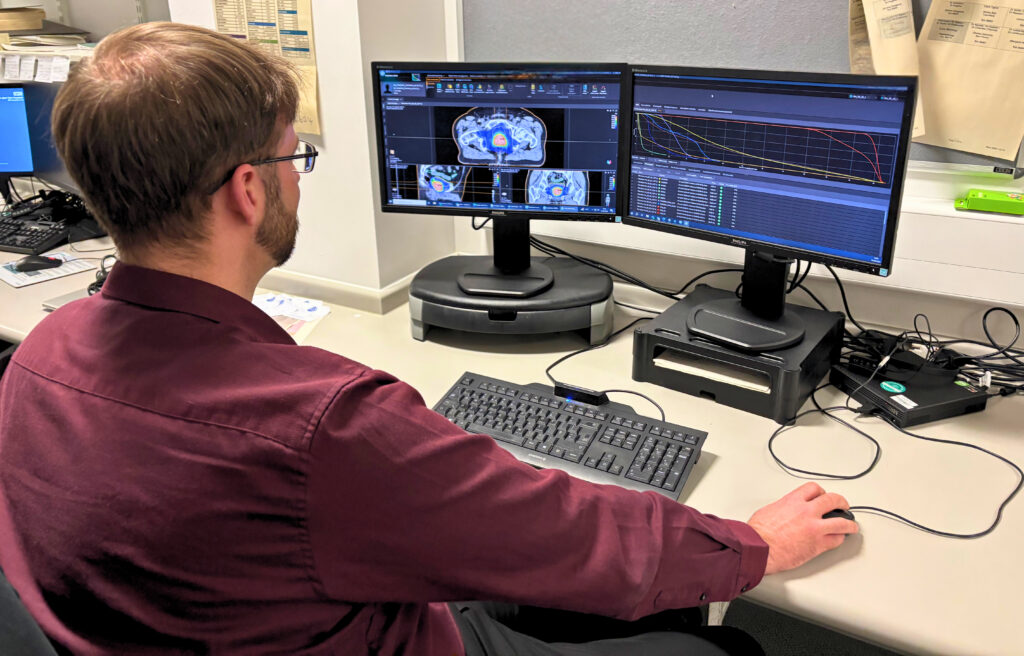The Northern Centre for Cancer Care (NCCC) has reached a significant milestone, treating over 1,000 prostate cancer patients using a cutting-edge automated radiotherapy planning system that’s helping deliver faster, more consistent and higher-quality care.
This innovative system, known as Edge, enables the team to create radiotherapy treatment plans more efficiently and with greater precision.
A radiotherapy treatment plan is a personalised roadmap that allows specialists to target radiation to cancerous tissue with pinpoint accuracy while minimising exposure to healthy areas. It involves several steps, including imaging scans, radiation dose calculations, and the creation of position-assisting devices to ensure patients remain in the same position throughout their treatment.
Normally, developing each plan required hours of meticulous work by clinical experts. Now, thanks to Edge, much of this process is automated, freeing up valuable time for staff and ensuring every patient receives a plan that meets the highest standards.

Nick West, clinical scientist, led a collaboration with Velindre Cancer Centre, who originally developed the technology, to adapt it for use at NCCC, working with fellow clinical scientist, Josh Kirby, to tailor the system to NCCC’s specific patient cohorts and clinical teams.
Head of treatment planning, Nick Willis, and consultant clinical oncologist and research lead Rachel Pearson were brought into the team to ensure rigorous testing and validation prior to introduction to clinical use.
Dr Pearson commented: “This is a fantastic example of how innovation and teamwork within the NHS can directly benefit patients. By embracing automation, we’re ensuring every patient receives a high-quality treatment plan while also improving efficiency across the service.”
For patients, this advancement means treatment plans can be created more quickly, helping to reduce waiting times. It also frees up staff from time-intensive manual planning, allowing them to focus more on patient care and support.
Nick West added: “Automated planning has saved over 500 hours of staff time, a vital gain amid workforce pressures and rising demand. Our collaboration with Velindre Cancer Centre highlights the power of innovation and shared expertise between leading centres. It’s helping us deliver consistently high-quality treatment plans while improving efficiency. This is a model for how technology and strategic partnerships can transform cancer care.”
The success of this initiative paves the way for automated planning to be extended to other cancer types, potentially benefitting even more patients in the future.
